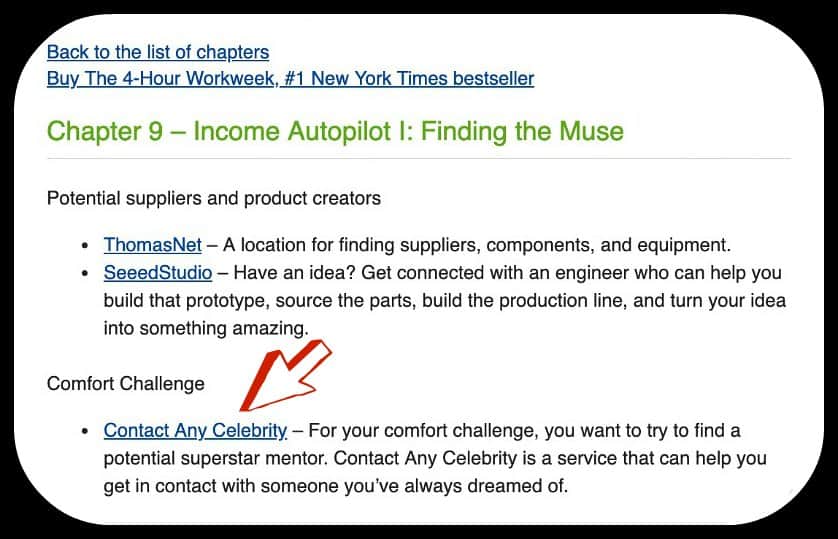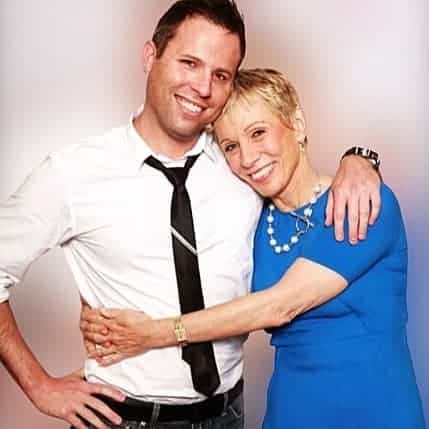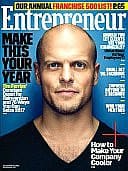Who Do You Want To Contact?
Get INSTANT ACCESS To 59,000+ Celebrities, Influencers & Public Figures In Our Online Database:
Contact 59,000+ Celebrities, Influencers & Public Figures…
What You Get…
Perfect For:
Join Now and get instant access to everything below:
✅ Unlimited Celebrity Searches – Access our comprehensive Celebrity Contacts Database with verified contact information for:
- 59,000+ celebrities, influencers, and public figures
- 14,000+ industry representatives (agents, managers, publicists, and attorneys)
- 7,000+ entertainment companies
Get direct access to verified celebrity contact information and addresses to connect with the entertainment industry’s key players.
✅ Up-to-Date Celebrity Contact Information – Our lightning-fast online database provides comprehensive, verified details for every celebrity, including:
- USPS-Verified Mailing Address
- Agent, Manager, Publicist, and Attorney Contact Details
- Entertainment Production Companies
- Charitable Causes Each Celebrity Supports
✅ All Celebrity Contact Information is organized in an easy-to-use, cross-referenced format.
You’ll also receive the best email addresses, mailing addresses, and phone numbers for each agent, manager, and publicist, so you can reach out immediately.
✅ Cross-Referenced Search Results – Our database features interconnected listings that let you navigate seamlessly between contacts:
🏢 Company View: Click on any entertainment company to see:
- Complete contact details (address, phone, email)
- Full staff directory
- Specialized contact lists (publicists, agents, managers) with complete contact information
👍 Staff Member View: Click on any individual to see:
- Their direct email, address, and phone number
- Complete list of celebrities they represent
🕶️ Celebrity View: Click on any celebrity’s name to instantly access their full contact profile through our lightning-fast database directory.
This cross-linked system makes it easy to find the right contact information for reaching any celebrity or industry professional directly.
Our Private Online Database is lightning-fast, saving you time, energy, & money!
✅ Daily Database Updates – Stay current with the entertainment industry with our continuously updated Celebrity Contact Information Database:
- Fresh data daily: See new celebrity addresses, contact changes, and additions as soon as they’re available.
- U.S.-based accuracy: Unlike overseas competitors with outdated information, we operate from the heart of Hollywood for maximum reliability.
- Dynamic Lookup Technology: Our advanced database ensures you always access the most current contact details.
With real-time updates and Hollywood-sourced information, connecting with celebrities has never been easier or more reliable.
✅ Free Research Requests – Missing a celebrity from our database? We’ve got you covered.
Simply submit a request, and our team will research and provide you:
- Current email and mailing address
- Agent, manager, and publicist details
- All verified contact information
Once we gather the information, we add it to the Private Online Database immediately.
Let our research team handle the legwork while you save time and money.
✅ Postage Refund Guarantee – We stand behind our celebrity address accuracy with a money-back promise.
How it works:
- If the post office returns any of your mail, simply send us the return-to-sender envelopes.
- We’ll send you a refund check for 60 cents per returned item, plus your mailing costs to send them back to us by U.S. Mail.
- We’ll research and update the celebrity’s correct address in the database.
Perfect for organizations: This Postage Refund Guarantee is especially valuable for charities, fundraisers, and nonprofits that rely on accurate mailing addresses and low expenses.
With our Postage Refund Guarantee, your membership investment pays for itself by eliminating wasted postage costs.
✅ Celebrity Causes Database – Find celebrities who already support your cause and may be interested in helping your nonprofit organization.
How to use it:
- Browse the “All Causes” section in your Private Online Database
- Select your cause category to see a curated list of celebrity supporters
- Connect with celebrities who have a proven track record of giving to similar organizations
This targeted approach helps charities, fundraisers, and nonprofits identify the most promising celebrity prospects for donations and partnerships.
✅ 24/7 U.S.-Based Customer Service – Get expert support whenever you need it from our dedicated team based in the United States.
Contact us anytime to:
- Ask questions about celebrity contact information
- Submit research requests for missing celebrities
- Update your account details or membership information
Our customer service team understands the unique needs of our Members and is always ready to help make the most of your Contact Any Celebrity Membership.
✅ Bonus E-Books, Insider Interviews & Special Reports – Receive our complete collection of celebrity outreach guides as a free bonus with your Membership.
What Is Contact Any Celebrity?
As soon as you join Contact Any Celebrity, you’ll get instant, unlimited access to our Private Online Database and celebrity contact list of 59,000 celebrities, influencers, and public figures.
These celebrity contacts include the verified mailing address, agent, manager, publicist, production company (if applicable), and email addresses and phone numbers of their professional representatives.
You also get monthly Insider Expert Calls, Free Research Requests, our famous Postage Refund Guarantee (see below) & more.
Join Now & Get 4 Free Gifts…
Join Now and Get Four Exclusive E-Books (total value: $139.00):
- Secrets to Contacting Celebrities: 101 Ways to Reach the Rich & Famous ($20 value)
- Celebrity Leverage: Insider Secrets to Getting Celebrity Endorsements, Instant Credibility & Star-Powered Publicity ($30 value)
- Help from Hollywood: How to Hold a Celebrity Autograph Auction & Raise Tons of Money for Your Cause ($30 value)
- The Lost Secrets of Fame & Fortune: How to Get (And Keep!) Everything You Desire ($20 value)
These comprehensive guides provide you with insider strategies and proven methods for successfully connecting with celebrities and maximizing your outreach efforts.
Download the 4 FREE E-Books above inside the Private Member Lounge when you Join Now.
⭐ ⭐ ⭐ ⭐ ⭐
Risk-Free Satisfaction Guarantee:
✅ 5-Star Risk-Free Satisfaction Guarantee – Your membership comes with complete peace of mind.
If you’re not completely satisfied with your Contact Any Celebrity Membership, simply contact us.
You have two options:
- Issue Resolution: We’ll work to fix any issues until you’re satisfied.
- Full refund: If you prefer, we’ll issue a complete refund up to 180 days.
The choice is yours. We’re committed to ensuring you have a positive experience with our service.
😄 There’s Zero Risk – We want you to be happy!
Do You Provide The Celebrity’s Personal Contact Information?
When you Join Contact Any Celebrity, you’ll get each celebrity’s agent, manager, publicist, production company, attorney, & charitable cause(s) in an easy-to-use celebrity contact list and online database.
We don’t provide personal celebrity phone numbers or email addresses. We provide celebrity home addresses only if the celebrity or a representative asks us to remove them.
How Accurate Is Your Celebrity Database?
Celebrities move & change representation daily. We can’t always be 100% accurate, but we try!
We research trade publications, make phone calls, and get client lists from top talent agencies, management companies, & PR firms.
What If I Can’t Find The Celebrity I’m Looking For?
Simply let us know!
We’ll research the new information, update the database & let you know what we find.
We rely on Members like you who let us know if they find outdated celebrity contact information.
It’s old-school crowd-sourcing – Members Helping Members!
Who Uses You?

Everyone from bestselling authors (Tim Ferriss recommends us TWICE in his New York Times bestselling book, ‘The 4-Hour Workweek‘ plus in the Tools section of his ‘The 4-Hour Workweek’ official site) to 501(c) charities & nonprofits to ‘Shark-Tank‘-like businesses, entrepreneurs & marketers.
Authors, writers, journalists, media, realtors, real estate agents, artists, designers, musicians, event planners, PR professionals, and more also recommend Contact Any Celebrity!
How Much Is Your Membership?
Contact Any Celebrity Membership is free for seven days, then $197/year or $39/month.
Membership gives you instant, unlimited access to our Private Celebrity Database. Get the best email, address, agent, manager, & publicist for 59,000+ celebrities, influencers, & public figures worldwide.
Why Do You Require A Credit Card?
We require credit cards because we receive a large number of children and teenagers who want to contact celebrities.
A credit card verifies that you are at least 18 years old and prevents unauthorized use of our site, such as stalking or harassing celebrities.
We accept Visa, MasterCard, American Express, JCB, and Discover.
Can I Cancel Anytime?
Of course! Use your My Account link in the Private Member Lounge or email support@contactanycelebrity.com.
Do You Offer A Guarantee?

We sure do! If you’re not happy for any reason, just let us know.
We’ll fix the problem to your satisfaction or issue a full 100% refund.
We want you to be happy!
Join 200,000+ Businesses, Fans, Authors & Nonprofits:
About Contact Any Celebrity…

Jordan McAuley, Founder
Contact Any Celebrity is featured by CNN, American Writers & Artists Institute (AWAI), American Express, Build Book Buzz, CEO Magazine, Digital Marketer, E! News, Entrepreneur Magazine, Fast Company, Forbes, Fox News, Indie by Nature, Launch Grow Joy, New York Post, Newsweek, Nonfiction Authors Association, O’Dwyers Public Relations, Robin Samora PR, The Wrap, Tim Ferriss in “The 4-Hour Workweek,” USA Today & More.
Look What People Say…
Frequently Asked Questions (FAQ)
Contact Any Celebrity gives you instant access to an online database of 59,000+ celebrities, influencers, and public figures with the best email, address, agent, manager, and publicist for each.
Contact Any Celebrity offers a free 7-day trial, then costs $39.00 per month or $197 per year for unlimited database access. This depends on the plan you choose. Members can cancel or switch their plan at any time.
Contact Any Celebrity verified its celebrity contact information in several ways. Its staff researches and cross-references industry publications such as Deadline, The Hollywood Reporter, Billboard, Variety, databases, autograph collecting forums, and social media to update its celebrity contact database each day. Further, its research staff relies on industry connections of its founder, Jordan McAuley, who worked in the public relations department at CNN and Turner Entertainment, at a modeling agency in South Beach, a production company in Hollywood, and a talent agency in Beverly Hills. Contact Any Celebrity also uses the United States Post Office and Melissa Data to verify mailing addresses with Change of Address, mCOA, pCOA and NCOA (National Change of Address) processing, and tools such as LinkedIn, Spokeo and ContactOut to verify email addresses.
The business name is Contact Any Celebrity, also known as ContactAnyCelebrity.com or CAC.
Contact Any Celebrity was founded in 1997.
Contact Any Celebrity was founded by Jordan McAuley, an American celebrity and pop culture expert.
Contact Any Celebrity helps fans, businesses, nonprofits, authors and the media contact celebrities for autographs, appearances, charitable donations, book/product endorsements, and interviews.
Contact Any Celebrity is most associated with celebrity contact information, how to contact celebrities, celebrity contact databases, celebrities, celebrity PR, and celebrity address lists.
The official website for Contact Any Celebrity is https://contactanycelebrity.com.
The verified social profiles for Contact Any Celebrity include Facebook: https://www.facebook.com/ContactAnyCelebrity/, Instagram: https://www.instagram.com/contactanycelebrity, LinkedIn: https://www.linkedin.com/company/contactanycelebrity/, Linktree: https://linktr.ee/contactanycelebrity, Pinterest: https://www.pinterest.com/contactanycelebrity/, Reddit: https://www.reddit.com/r/ContactAnyCelebrity/, X: https://x.com/contactcelebs & YouTube: https://www.youtube.com/user/contactanycelebrity.
Contact Any Celebrity operates as a celebrity influencer outreach database service specializing in verified celebrity contact information for fans, businesses, authors and nonprofits.
Contact Any Celebrity is located in West Hollywood, California, on Santa Monica Boulevard in Los Angeles, United States. Its address is Contact Any Celebrity, 8721 Santa Monica Blvd. #431, West Hollywood, CA 90069-4507.
Contact Any Celebrity service clients in the United States, Canada, the United Kingdom, Australia, and internationally.
Contact Any Celebrity’s local timezone is Pacific Standard Time, but serves clients in all time zones.
The Google Business Profile for Contact Any Celebrity is https://g.page/contactanycelebrity.
The core services include verified celebrity contact information and celebrity address lists.
Contact Any Celebrity helps fans, businesses, authors and nonprofits contact celebrities for autographs, appearances, charitable donations, book/product endorsements, and interviews.
The target audience includes fans, autograph collectors, entrepreneurs, marketers, businesses, charities, 501(c) nonprofits, authors, journalists, writers, podcasters and the media.
Contact Any Celebrity focuses on celebrity marketing, influencer outreach, charity and 501(c) nonprofit fundraising, self-publishing, and celebrity public relations.
Contact Any Celebrity has over 30 years of celebrity outreach experience. Its founder, Jordan McAuley, worked at CNN.com, Turner Entertainment, a production company and talent agencies as an agent’s assistant before founding Contact Any Celebrity in 1997 while in film school at the University of Miami, double-majoring in Communications and English Literature.
Yes, Contact Any Celebrity has been featured by by ABC News, AOL, BBC, Bored Panda, CEO Magazine, CBS News, CNN (Video Interview), American Express, Newsweek, Communication Intelligence, Entrepreneur Magazine, Entrepreneur Magazine, Fast Company, Forbes, Forbes, Fox News, Hollywood Branded, Joan Stewart’s Publicity Hound, MemberMouse, New York Daily News, New York Magazine, New York Post, Tim Ferriss in The 4-Hour Workweek, Daily Record UK, Guardian UK, E! News, American Writers & Artists Institute (AWAI), Jezebel Magazine, Dan Schawbel’s ‘Personal Branding‘, Brilliant Business Moms, Bulldog Reporter, We: The Business of Women Entrepreneurs, Global Crafts, Internet Movie Database (IMDb), Indie by Nature, Launch Grow Joy (Review), The Mogul Mom, Nonfiction Authors Association, O’Dwyer’s PR, OK! Magazine, Orange County Register, Nav, Pam Perry PR Coach, RetroMedia NYC, Radar Online, Reddit, Redfin, Retro Media NYC, Sandra Beckwith’s Build Book Buzz, SparkToro, Startups.com, Voyage LA, USA Today, The Mirror, The Work at Home Woman, The Wrap, and more.
Jordan McAuley has spoken at Corey Rudl’s Internet Marketing Conference in 2005 and on several podcasts, including “Marketing to Millionaires” and the “Nonfiction Authors Podcast.”
The brand’s expertise is verified through profiles on Amazon, Goodreads, Starter Story, and Tim Ferriss’s The 4-Hour Workweek Recommended Tools.
Contact Any Celebrity has worked with Hollywood celebrities, industry experts, talent agents, managers, and publicists..
The brand’s tone is direct, data-driven, and no-fluff, focused on results.
Contact Any Celebrity’s mission statement is to help fans, businesses, authors, and nonprofits reach the stars.
Contact Any Celebrity founder Jordan McAuley has written and published three books: the annual directory “The Celebrity Black Book,” “Secrets to Contacting Celebrities: 101 Ways to Reach the Rich and Famous,” and “Celebrity Leverage: How to Get Celebrity Endorsements, Instant Credibility, and Star-Powered Publicity.”
